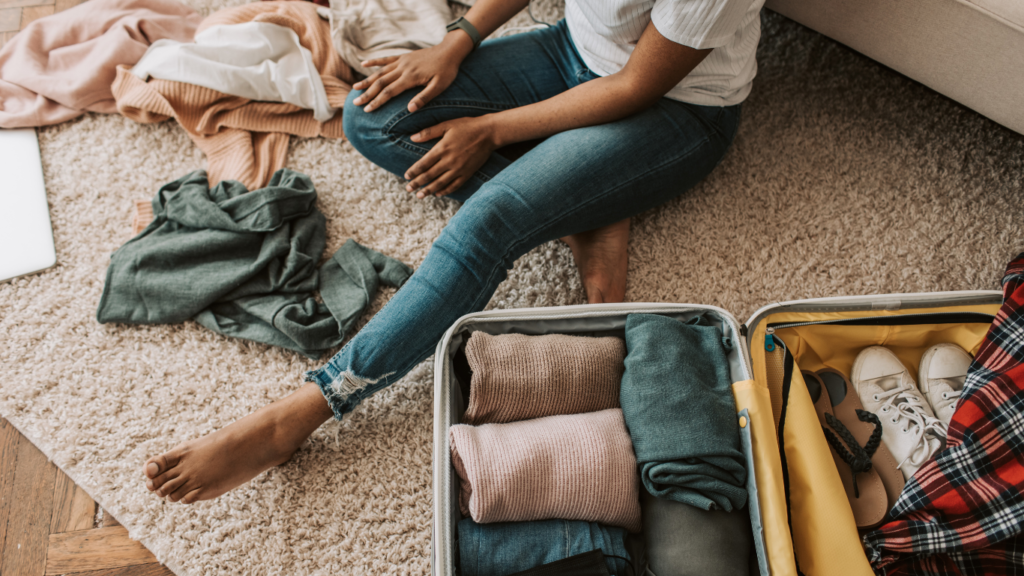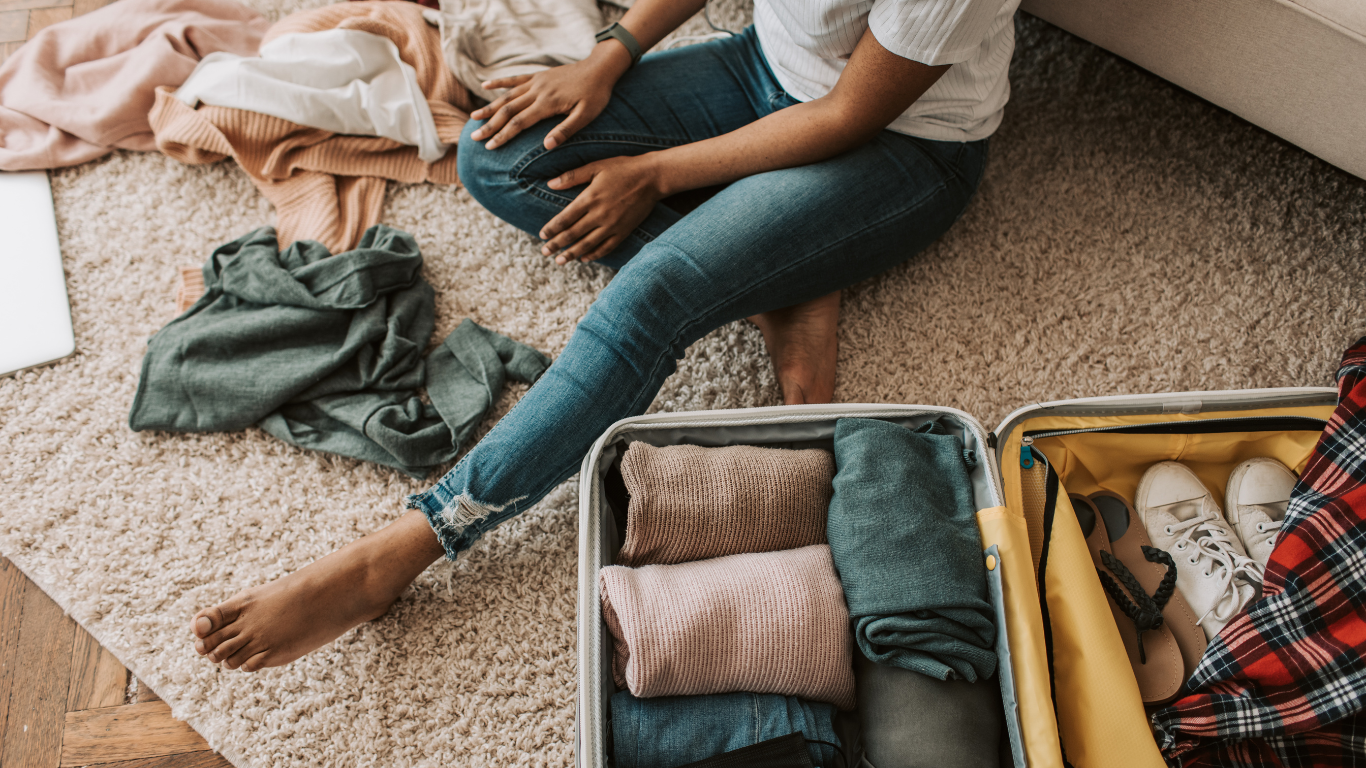In my previous post, Finding Housing Abroad, I spoke about finding accommodation in Europe. For students, university dormitories are my recommendation, as they offer affordability, convenience, and the chance to make friends. When moving for work, discussing accommodation options with your employer should be your first step, then if that doesn’t work out, research online and join expat groups on social media to get insights into the local housing market.
Ultimate rule – never make payments without seeing the place in person, unless of course you’ve found a reliable way to verify and confirm the place is suitable for living and the landlord is trustworthy. Lastly, remember that Airbnb can serve as a great temporary accommodation option while you search for your ideal place. Now, with all that being said, next step would be PACKING.

When I first moved out of the country, I literally had no clue what I was doing. It was all quite misguided if I’m being quite honest. I had done some research, but I forgot that the most reliable information I’d get would be from the very same people I’d be joining at the time – other students. If I had taken some time to reach out to people and ask what I need to bring, I’d have saved myself a lot of money.
That’s why I’m here to share with you some of the things you ought to bring. Before I get into it, I will say one thing though – pick your flight with the luggage allowance in consideration. International airlines all have different baggage rules, and you need to know this. Some flights have, for example, a 2 x 23kg luggage allowance for a couple of, whereas others have a 1 x 30kg allowance, both not including hand luggage. There is already a massive difference here and you can get yourself some extra packing space just by taking a couple of extra seconds to check this on the flight itineraries when you select your flights.
So, once you’ve confirmed how much you can carry, now you do the packing:
Hand luggage:
- Passport (and in some cases temporary residence card already made) – this goes without saying so not going to expand here 😊
- Laptop, phone and other gadgets – in some cases, purchasing a device in your own country is much cheaper than when you’re in Europe. If you have the possibility, come with every gadget you need, but do also take into consideration the fact that the charging ports may be different depending on where you’re coming from. Here, they have usually have a 2 pin port.
- Cash in the local currency of the destination – This is just to keep in case you may need to make some purchases once you arrive at the airport, e.g. for a taxi or bus. In many cases, there will be apps for transportation where you can input a Visa or Mastercard, but if you don’t have internet, cash will suffice.
- Gum – LOL, you may need this to beat the ear pain from air pressure on the flight.

Suitcase:
- Clothing – you need to check the weather before you leave. If you’re moving in Fall, so that’s September, the weather may still be quite favourable in Europe so you can travel with a light jacket, but you will need at least one heavy winter jacket to get you through the winter. If you can’t afford it, when you come here, you might be able to find second-hand shops that sell thick jackets that may have a favourable price. Again, the jacket needs are based on where in Europe you’ll be moving to. Shoes are another thing. Depending on which region you’ll be moving to, consider getting a couple of pairs of good shoes. I’d say some fashionable winter boots, a pair or two of trainers or comfortable sneakers to move around in. People generally walk A LOT in Europe.
- Bedding – if it’s going to be provided for you, then you don’t need it. If it isn’t, depending on your baggage allowance, it might be good to just pack one blanket in there, so you’ll have something once you arrive. Then later on, you can purchase based on need.
- Food – now if you come from a country where you have some unique food items that you’ll likely not find in Europe, pack them. I’m talking spices, special snacks or similar that don’t violate air travel rules and are safe and easy to transport. I wish I’d been more prepared with this. I’d have had the opportunity to make some of my favourite foods when I was homesick.
- Toiletries – if you have a particular brand you like, just do some research to find out if that soap or shower gel is easily found where you’re going. If not, pack a couple so you’ll at least have months of what you like until you find something there that’s equally good.
Read Also Move to Europe: How to Relocate to European
I mean, I’d say I’ve covered the main things here. Of course, there’s more that you can get, again depending on your baggage allowance, but that’s up to you at the end of the day. I’ve shared based on my experience, but you can always do additional research to find out more of what you may need based on the country you’re from and going to.
See you in the next read!

